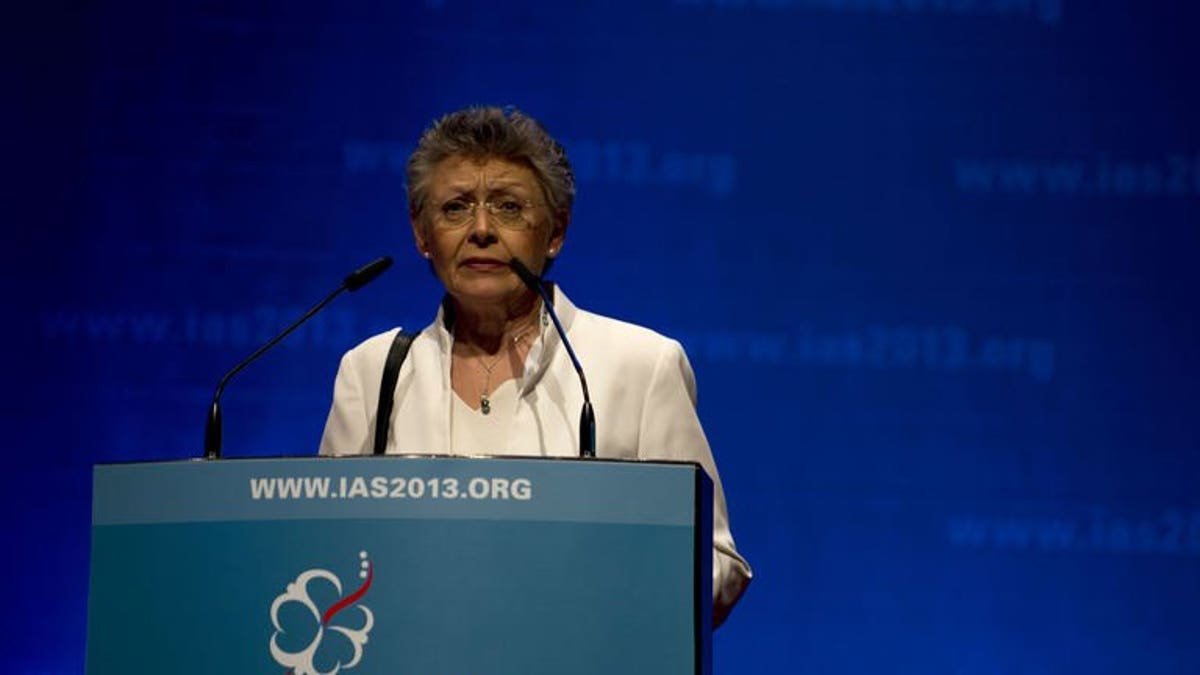
President of the International AIDS Society (IAS), Francoise Barre-Sinoussi speaks during the official opening of the 7th IAS Conference on HIV Pathogenesis, Treatment and Prevention in Kuala Lumpur on June 30, 2013. AIDS experts on Sunday called for a more open debate on the global pandemic in Asia, where they say discrimination still fuels the spread of HIV. (AFP)
KUALA LUMPUR (AFP) – AIDS experts on Sunday called for a more open debate on the global pandemic in Asia, where they say discrimination still fuels the spread of HIV.
Francoise Barre-Sinoussi, president of the International AIDS Society (IAS), said many people infected with the HIV virus still did not receive early treatment due to discrimination, despite its benefits and the overall optimism over scientific advancements.
"Many Asian countries experienced concentrated epidemics, and there is an immense need to address key affected populations, which are still left behind in many countries," she said opening IAS's conference in the Malaysian capital Kuala Lumpur.
"We all know that stigma and discrimination are still amongst the key barriers," she added.
Adeeba Kamarulzaman, AIDS researcher at Malaysia's Universiti Malaya, said those affected by the disease and needing help included gay men, sex workers and transgendered people.
"Malaysia and indeed huge parts of Asia has a long way to go to match the scientific gains of the past few years with on-the-ground programmes," she said.
Michel Kazatchkine, the UN's special envoy for HIV/AIDS in Eastern Europe and Central Asia, said the region should also decriminalise drug use, making it easier for users to get clean needles and other help to prevent infections with HIV.
"I don't see in Asia at this time a big momentum towards an open debate (on this)... but what I see are political opportunities," he told a discussion on drug policy and public health on the sidelines of the conference.
"It is time for open and honest debate. It is time to destigmatise," he said.
According to UNAIDS, 34 million people globally were living with HIV in 2011. That year, 2.5 million people became newly infected, around 10 percent of which was probably caused by drug use.
Many Asian countries have tough anti-drug laws, including death sentences for convicted drug traffickers. Drug users and other marginalised groups, such as gay and transgendered people, also face social stigma.
This year marks the first time the biennial scientific international conference has been held in Asia. In total, the global pandemic has claimed 30 million lives.
